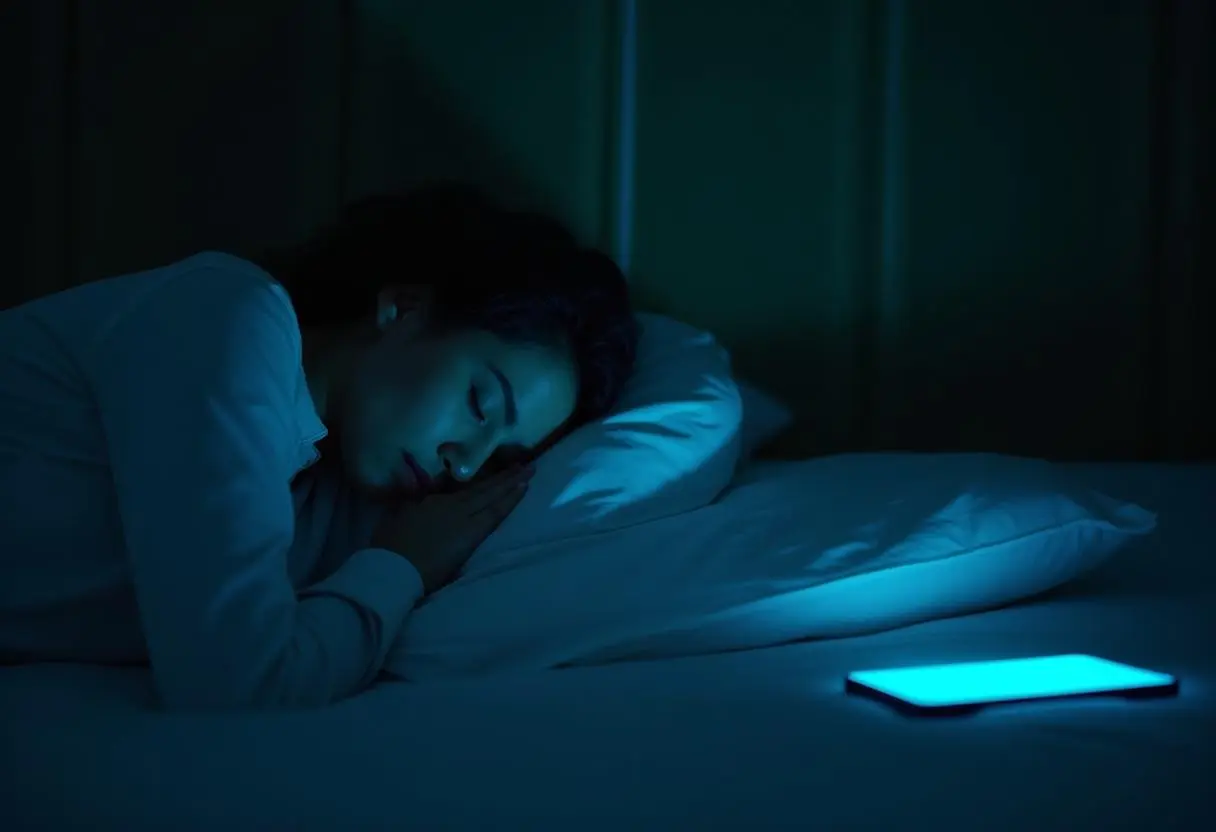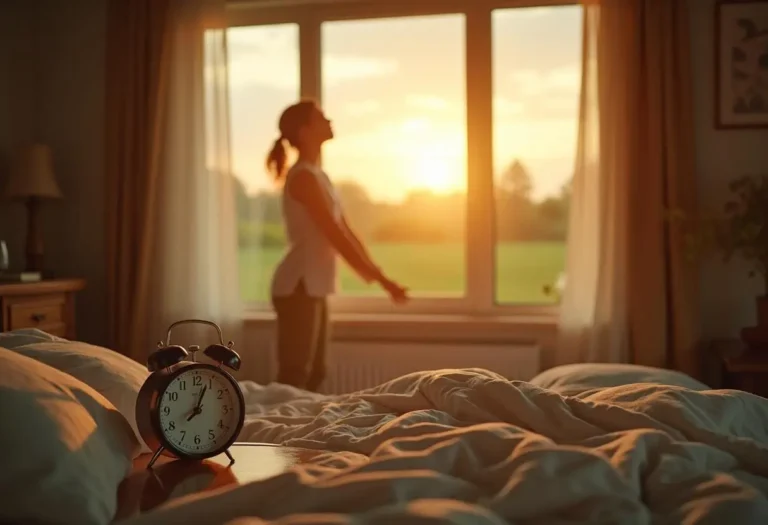Learning how to avoid the impact of mobile phone use on sleep has become one of the most critical self-care skills of our digital age. Now, let’s be honest for a moment. There’s a very good chance you’re reading this right now, well past midnight here in Pune, on your phone, while lying in bed… and wondering why you can’t seem to fall asleep.
If so, you are not alone. This has become the great paradox of modern life: we use the very device that connects us to the world as a way to wind down, only to find it leaves our minds buzzing and our bodies stubbornly awake. The endless scroll through social media, the “one last check” of our emails, the binge-watching of a new series—it all conspires to rob us of the deep, restorative rest we desperately need.
But this isn’t about shaming our habits or demonizing our phones. Our devices are incredible tools. The goal is to learn how to mindfully disconnect from them so that we can properly reconnect with our body’s natural need for sleep. Let’s explore the why behind this sleep sabotage and the simple, practical steps you can take to reclaim your nights.
Table of Contents
The Two Thieves of Slumber: Why Your Phone Keeps You Awake
Understanding the science behind the screen is the first step in learning how to avoid the impact of mobile phone use on sleep. Two main culprits are at work every time you scroll in the dark.
1. The Blue Light Deception
The screen of your smartphone emits a powerful, blue-spectrum light.1 During the day, this is fine. But at night, this specific wavelength is a master trickster. It deceives your brain into thinking it’s still daytime, which in turn suppresses the production of Melatonin, the crucial hormone that tells your body it’s time to sleep.2 Without adequate melatonin, your internal clock gets completely confused, and you simply don’t feel sleepy when you should.
2. The Content Conundrum
Beyond the biology, there’s the psychology. The content we consume on our phones is designed to be engaging. A stressful news article, a dramatic email from your boss, or a stimulating social media feed all put your brain into an active, problem-solving, or emotionally aroused state. This is the complete opposite of the calm, passive, and relaxed state required to drift off to sleep.
5 Practical Strategies on How to Avoid the Impact of Mobile Phone Use on Sleep
Here are five simple but game-changing habits you can start building tonight.
1. Create a “Digital Sunset” (The 90-Minute Rule)
This is the single most effective strategy. Just as the sun sets to signal the end of the day, you need to create a “digital sunset” for your brain.
- The Strategy: Make a firm rule to put all screens—phones, tablets, laptops, TVs—away for at least 60 to 90 minutes before your intended bedtime. This gives your brain the crucial time it needs for melatonin production to rise naturally and for your mind to start unwinding from the day’s stimulation.
2. Charge Your Phone Outside the Bedroom
The biggest temptation is the one within arm’s reach. If your phone is on your bedside table, the urge to “just check one thing” is often too strong to resist.
- The Strategy: Make your bedroom a phone-free sanctuary. Find a charging spot in your living room or kitchen. This simple act of creating physical distance is incredibly powerful. It removes the temptation entirely and forces you to consciously disconnect.
3. Invest in an Old-Fashioned Alarm Clock
“But I use my phone as my alarm!” This is the number one reason people keep their phones in the bedroom. The solution is wonderfully simple and retro.
- The Strategy: Buy a basic, inexpensive digital or analog alarm clock. This completely eliminates the primary excuse for having your phone by your bed, freeing you to follow Rule #2 without anxiety about waking up on time.
4. Use Your Phone’s “Wellness” Settings
While not a perfect substitute for putting the phone away, using your device’s built-in features can help reduce some of the harm.
- The Strategy: Go into your phone’s settings and schedule “Night Shift” (on Apple) or “Night Light” (on Android) to turn on automatically every evening. This shifts the screen’s colour to a warmer, amber tone, reducing the amount of blue light.3 Also, use “Do Not Disturb” or “Focus” modes to silence notifications.
5. Craft a Screen-Free Wind-Down Ritual
You need to replace the scrolling habit with a relaxing one. Creating a new pre-sleep ritual will give your mind something calming to look forward to.
- The Strategy: Use your new 60-90 minute screen-free time to do something that genuinely relaxes you. Some ideas include:
- Reading a physical book (not on a screen).
- Listening to a calming podcast or an audiobook.
- Gentle stretching or bedtime yoga.
- Journaling to get your thoughts out of your head.
- Taking a warm bath.
- Simply talking with your partner or family.
What If You Must Use Your Phone Before Bed? (Harm Reduction Tips)
If there’s an emergency or you absolutely must use your phone in your wind-down window:
- Wear blue-light-blocking glasses in the evening to filter out the harmful wavelengths.4
- Turn your screen’s brightness down to the lowest possible setting.5
- Avoid emotionally activating content. Stick to something passive and calming, like a meditation app or a gentle audiobook.
Conclusion: Your Sleep is More Important Than Your Screen
The endless stream of information on your phone will still be there in the morning. Your opportunity for a night of deep, restorative sleep, however, is precious and fleeting. Learning how to avoid the impact of mobile phone use on sleep is a profound act of self-respect and a critical investment in your mental and physical health.
Tonight, make a new choice. Put the phone down a little earlier. Give your mind the gift of stillness. Let your body remember its natural rhythm. Your well-rested future self will thank you for it.
What is the one small change you will make tonight to protect your sleep? Share your commitment with the Well Being Zen community in the comments below!




